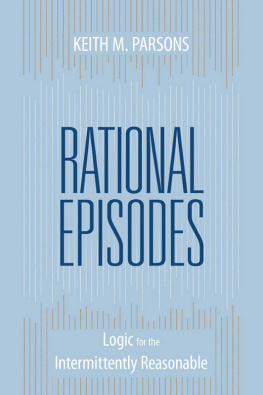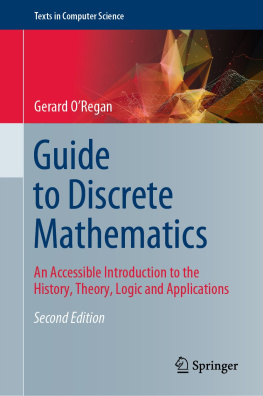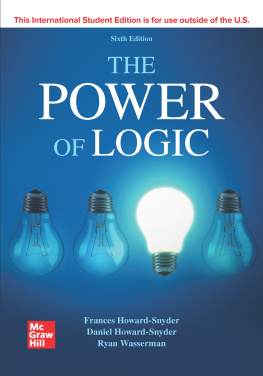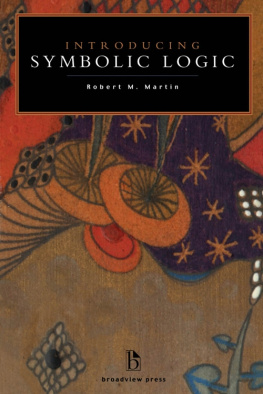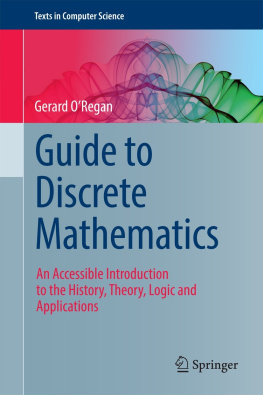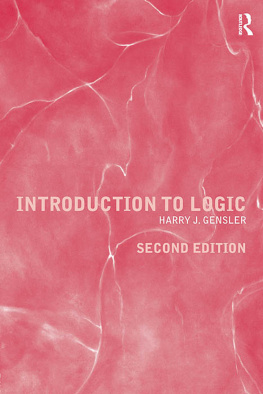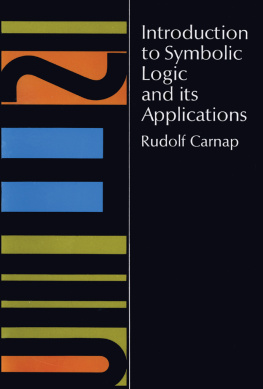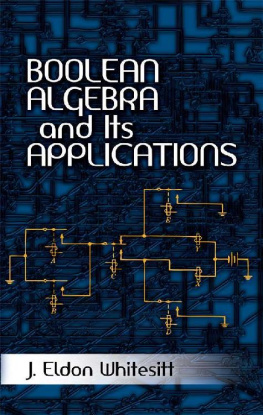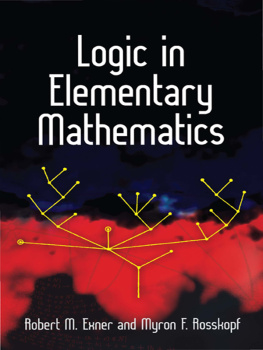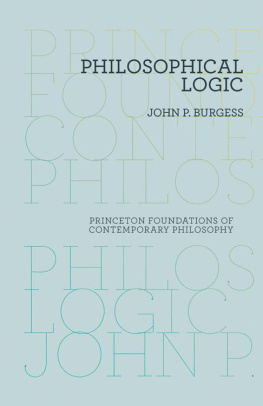

As always, my wife, Carol, is to be thanked for patience when I had to spend many weekend days at my office, laboring to finish this book. The families of authors always have to put up with a lot, and Carol has always borne it all with grace and encouragement. Once again, I have had the pleasure of working with Steven L. Mitchell and the fine staff at Prometheus Books. Their professionalism always makes the arduous process of completing a book less rocky and exasperating. You are asking a big favor when you ask colleagues to read drafts of chapters for a textbook. However, since this text covers many subjects, and no one person can have expertise in all of them, I very much needed colleagues who were willing to impart their knowledge and experience to lead me in the right direction. Fortunately, a number of my colleagues here at the University of Houston, Clear Lake, responded to my importunities. I would like to thank Professors Frank Matthews, Dorothea Lerman, Stephanie Hart, and Hunter Stephenson for reading drafts of various chapters and for their very helpful suggestions for improvement. I would also like to thank my friend and fellow philosopher John Beversluis for saving me from committing a number of errors of form and content. Naturally, any errors or faults remaining with the text are due to me and not to my colleagues. I would also like to thank students of my introductory logic class in spring term of 2007, who greatly helped me improve the content and form of the chapters dealing with sentential and predicate logic.

Why do we believe the things we do? We hold many of our beliefs because we were taught them at an early age and never thought to question them. We believe many things, even important things, for the slightest of reasons. A TV commercial we heard twenty years ago, which has long since faded from conscious memory, may still prompt us to prefer brand X over brand Y. We believe many things because they flatter our vanity, soothe our fears, or pander to our biases. Politicians know this and that is why they are so good at pushing our buttons. Occasionally, though, we live up to our reputations as rational creatures and try to find out whether something is really so. That is, we try to think clearly and objectively about things and strive to base our beliefs on the best evidence available and not infer more than the evidence authorizes us to believe. In other words, we try to be like the wise man, who, as David Hume says, proportions his belief to the evidence.
Also, we frequently try to influence other people's beliefs. Since humans are social creatures, and we have to act collectively to get important things done, and since actions depend on beliefs, we have to be interested in other people's beliefs. Another reason to be interested in other people's beliefs is that beliefs have consequences, often serious ones. If someone believes that people like you are evil, and that anyone who dies in the act of killing people like you will receive rich rewards in paradise, then you had better be on guard. Because beliefs matter, many people exert considerable effort to influence others opinions.
Politicians, pundits, and advertisers often try to influence people's beliefs by manipulating them in various waysby playing on their fears or prejudices, for instance. Sometimes, though, we try to influence other people's beliefs by reasoning with them rather than merely manipulating them. When we attempt to persuade people rationally we offer them arguments. When we draw conclusions from arguments or evidence we make an inference. Logic is about argument and inference. We study logic to learn how to distinguish good arguments from bad ones and to learn how to construct good arguments. Concomitantly, logic teaches us which inferences we should or should not draw from given arguments or evidence.
When we offer an argument to someone, we are trying to get that person to accept some conclusion. The reasons we offer in support of those conclusions are called premises by logicians. Since we communicate with language, and since language is organized into sentences, our arguments will be groups of sentences. In particular, our arguments will consist only of declarative sentences, that is, sentences that assert that something is either so or not so. Other types of sentences, those that ask questions or express commands, cannot constitute arguments (though they might sometimes suggest or imply arguments, e.g., when somebody asks Do you really plan to wear that? he or she signals willingness to argue that you shouldn't wear that). So an argument consists of a set of declarative sentences, one of which is the conclusion, and with one or more premises. The following is an argument; the premises are marked by the letter P and a number indicating which premise it is, and the conclusion is marked by the letter C:
P-1: Few good people enter politics, and those who do soon cease to be good.
P-2: Joan Smith has decided to enter the mayor's race.
C: Either Joan Smith is not a good person, or she will soon cease to be one.
You may agree with the conclusion of this argument, or you may find it overly cynical. The point is that anyone offering you such an argument intends that the premises give you reasons for accepting the conclusion. You also often hear people saying that premises support a conclusion, or give grounds for the conclusion, or justify the conclusion. These are just different ways of saying that the premises are supposed to give us good reason to think that the conclusion is true.
Sometimes the premises of an argument really do support the conclusion, and sometimes they do not. A good argument is one where the premises support the conclusion; a bad argument is one where the premises fail to support the conclusion. Another way of putting it is that a good argument is one where the conclusion follows from the premises, but a bad argument is one where the conclusion does not follow from the premises. Logic gives us norms for distinguishing good arguments from bad.
Here is a good argument:
P-1: All firemen are employees of the Department of Public Safety.
P-2: Jarrod is a fireman.
C: Jarrod is an employee of the Department of Public Safety.
Here is a bad argument:
P-1: All tenured faculty members of the History Department are PhDs in history.
P-2: Erin is a PhD in history.
C: Erin is a tenured faculty member in the History Department.
What makes the first argument good and the second one bad? In the first argument, the premises support the conclusion in the strongest possible way, namely, if the premises of the first argument are true, then the conclusion has got to be true. So if you accept the two premises as true, you have to accept the conclusion also. Why? Well, it is just impossible for Jarrod to be a fireman, and for all firemen to be employees of the Department of Public Safety, and for Jarrod not to be an employee of the Department of Public Safety. But what do we mean by impossible here? Lots of things are impossible. It is impossible for a cow to jump over the moon. It is impossible for me to believe that a congressman can receive lavish gifts and favors from a lobbyist and not be influenced. When we say that it is impossible for the premises of an argument to be true and the conclusion false, do we mean impossible in any of these senses?

